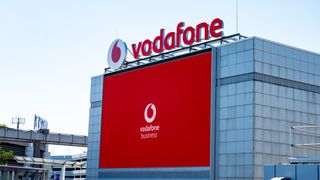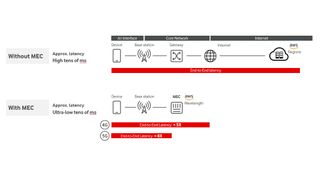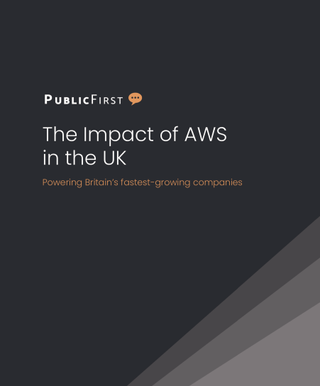AWS and Vodafone team up to bring 'ultra-low latency' to UK businesses
Vodafone's customers and software developers are the first in Europe to benefit from the Wavelength technology

Amazon Web Services (AWS) has announced the general availability of its Wavelength Multi-access Edge Computing (MEC) service, with Vodafone UK's business customers and software developers being the first in Europe to benefit from the technology.
First unveiled in 2019, AWS Wavelength offers optimised solutions for mobile edge computing applications, simplifying application traffic in order to fully utilise the latency and bandwidth benefits offered by modern 5G networks.
The technology had been trialled by over 180 companies across a range of sectors, including sports technology, autonomous transport, biometric security, remote virtual reality, and factory automation. However, Wavelength is most likely to benefit a range of time-sensitive scenarios, from surgeries to online gaming. One of the beneficiaries of the trial programme, sports technology provider Sportable, reported having its internet latencies lowered from the average of 221.87 milliseconds to only 36.55 milliseconds.
Developers will be able to deploy their applications to AWS Wavelength Zones – infrastructure deployments that embed AWS compute and storage services within data centres at the edge of the network. The AWS Wavelength Zones simplify the way the cloud is accessed using traditional mobile architectures, allowing application traffic to travel straight from the device to a cell tower to a Zone, with the first one being based in London.
In optimum conditions within the Zones, latency can be reduced to as little as 10 milliseconds Round Trip Time (RTT) between the base station and MEC infrastructure.
Vodafone has been provided the exclusive right to offer its business customers the combination of 5G and MEC services in the UK, with those based in London, Oxford, Cambridge, Bristol, and Cardiff being the first to benefit. Vodafone business customers in Scotland and the northern regions of England will be able to benefit from the technology in 2022, with other locations being added at a later date.

Commenting on the news, AWS Wavelength general manager and AWS Product Management director George Elissaios said that the technology will “transform user experiences in the UK”.
Get the ITPro. daily newsletter
Receive our latest news, industry updates, featured resources and more. Sign up today to receive our FREE report on AI cyber crime & security - newly updated for 2024.
“By combining AWS Wavelength and Vodafone 5G, businesses and applications developers can now leverage the full breadth of AWS cloud services right at the edge of 5G networks. This enables Wavelength customers to explore new business opportunities, build applications and services that were not possible before,” he added.
Meanwhile, Vodafone UK business director Anne Sheehan said that Edge Compute and 5G “is a combination no other service provider can offer in Europe”.
“What we are doing in the UK is evolving our business beyond the traditional boundaries of telecoms connectivity services. What we’re now able to offer to customers is unique to Vodafone, and we’ve already seen new services being developed by our trialists – the potential for completely new ideas enabled by this combination is massive,” she added.
AWS Wavelength is available in only select locations around the world, including Daejeon, South Korea, Tokyo, 10 cities across the United States, and now London. Dusseldorf, Germany is expected to receive general availability later this year, also on the Vodafone 4G/5G network, with trials currently ongoing.
Having only graduated from City University in 2019, Sabina has already demonstrated her abilities as a keen writer and effective journalist. Currently a content writer for Drapers, Sabina spent a number of years writing for ITPro, specialising in networking and telecommunications, as well as charting the efforts of technology companies to improve their inclusion and diversity strategies, a topic close to her heart.
Sabina has also held a number of editorial roles at Harper's Bazaar, Cube Collective, and HighClouds.






